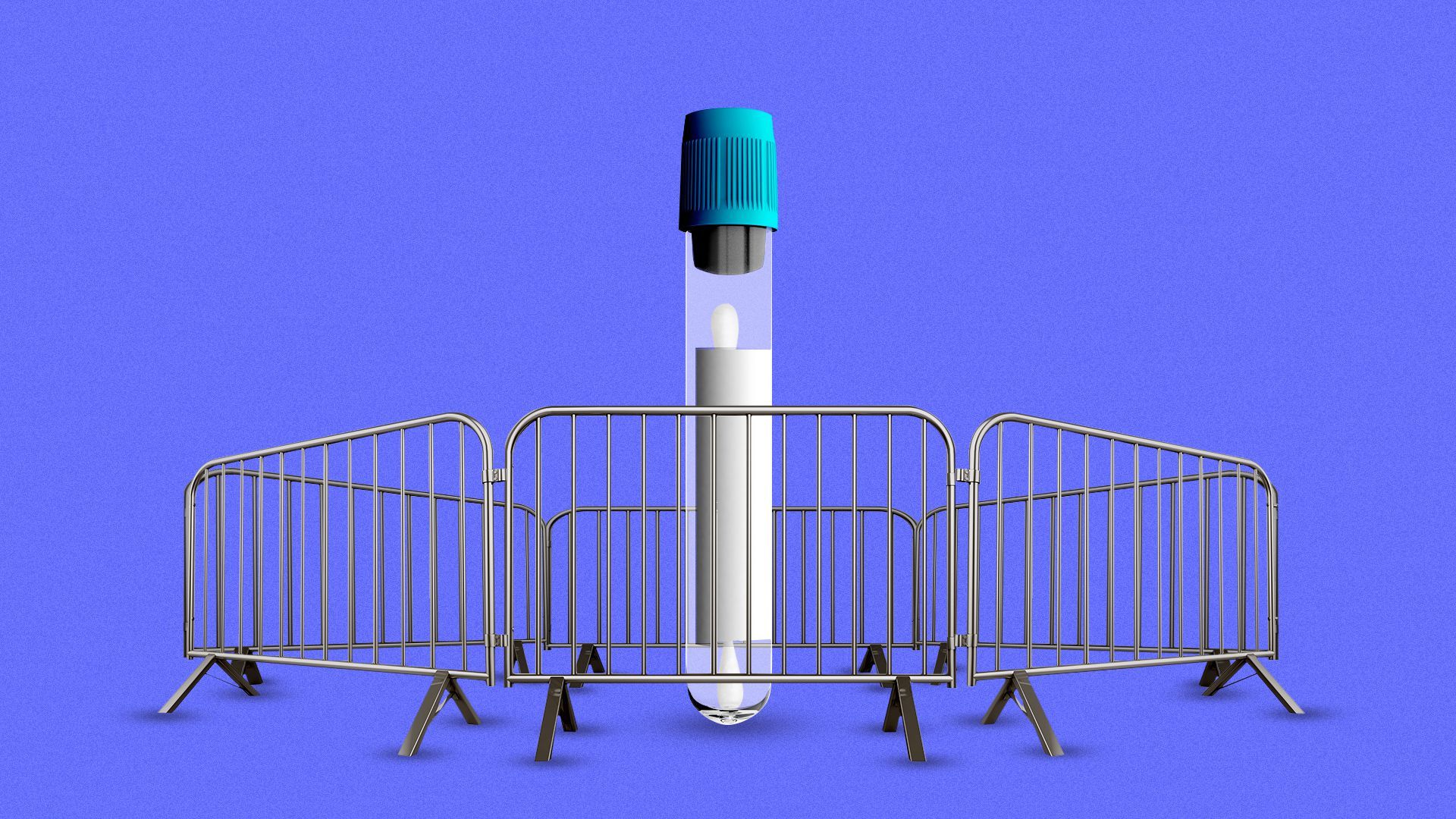The murky rules around coronavirus testing insurance coverage
Add Axios as your preferred source to
see more of our stories on Google.

Illustration: Aïda Amer/Axios
Some insurers' limits on coverage for coronavirus testing may push the bounds of federal law.
Why it matters: Testing people who aren't displaying symptoms is an essential part of the public health response to the coronavirus, but some insurers appear to be unwilling to pay the full cost of those tests.
The big picture: Congress passed legislation earlier this year requiring insurers to cover all coronavirus tests — including diagnostic and antibody — without cost sharing, and without "prior authorization or other medical management requirements."
- Implementing guidance issued by the Departments of Labor, Health and Human Services and the Treasury added more detail, stating that tests "must be covered without cost sharing when medically appropriate for the individual, as determined by the individual’s attending healthcare provider in accordance with accepted standards of current medical practice."
Where it stands: Some insurers' policies specifically say that a patient must be showing symptoms in order to get tested without cost-sharing. That may be too restrictive.
- "All tests, full stop, must be free without cost-sharing," a Senate aide who helped draft the coverage requirements told me. "Members of Congress would be surprised to learn that insurance companies are not covering 'free tests without cost sharing.' "
- "I don’t think it's open and shut…but I think the stronger read of the statute and the FAQ is that they don’t have the authority to limit it to tests that are medically necessary," said Christen Linke Young of the USC-Brookings Schaeffer Initiative for Health Policy.
The other side: The federal guidance document implementing Congress' requirements leaves room for insurers to impose some hurdles — such as requiring that tests be ordered by a health care provider.
- "It is possible to interpret the language in [the legislation] to encompass broad surveillance-type testing, but that’s not the federal government's position today, as I read it," said Sabrina Corlette, co-director of Georgetown's Center on Health Insurance Reforms.
- But some insurers say that it's unclear whether they're required to cover precautionary tests for asymptomatic patients, and many major plans have coverage policies that require tests to be medically necessary or ordered by a doctor. Some have gone further, explicitly requiring patients to be symptomatic.
Some experts say those limits may be illegal, or at least fall into a gray area.
Between the lines: "Medically necessary" — the language many insurers are using — isn't necessarily the same thing as "medically appropriate," the language used in the agency guidance.
- "Especially given that most states have a 'standing order' for COVID-19 testing, which authorizes any provider to order the testing, this kind of surveillance testing appears to be both medically appropriate and under the supervision of an 'attending' health care provider," Young said.
What we're watching: “If the feds are going to address this testing issue and say to plans and carriers you’ve got to cover tests for anybody who presents whether they have symptoms or not, then we need to have an honest and fair conversation about what that’s going to mean for premiums," Corlette said.
The bottom line: This is going to become increasingly important in real life, as testing becomes more available and employers — especially those in high-risk categories — want to test their workers as a precaution.
